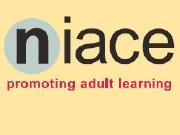HE and FE loans

The higher education White Paper consultation, which ended last week, has been welcomed in the further education sector for its recognition of FE’s ‘distinctive mission’ in delivering higher education and its track record in reaching out to and engaging non-traditional higher learners, including mature and part-time students.
The paper aims to create an HE system that is ‘more responsive to student choice, that provides a better student experience and that helps to improve social mobility’, and rightly argues that an enhanced role for HE in FE can support these aims, helping to create more affordable opportunities for adults to access higher study in ways that fit in around their lives and work roles.
But while the paper is strong in its acknowledgement of the need for credible alternatives to the traditional three-year full-time higher education experience, it risks under-appreciating the interconnectedness of further and higher education and the need to view higher education as part of a wider framework of lifelong learning.
This is evident in its plans to widen participation and improve social mobility, which are likely to be undermined by the ‘core and margin’ system which will make it more difficult for mature students to gain a place at elite universities and lead to a disproportionate representation of non-traditional students at less prestigious and less well-resourced institutions.
Also in need of closer examination is the Government’s decision – first set out in Investing in Skills for Sustainable Growth and reiterated in the White Paper – to introduce government-backed loans for FE students over the age of 24 taking qualifications at Level 3 and above from 2013–14. These loans, of up to £4,000 repayable once the learner has finished the course and is earning £21,000 or more, will apply to all provision at Levels 3 and 4 for those aged 24-plus, including Access to HE courses, as well as Advanced and Higher Apprenticeships.
What this means is that mature college students considering a course of higher study will have to take on a loan to finance an Access to Higher Education diploma and a further loan to undertake an undergraduate degree course. The prospect of having to pay back two sets of loans is likely to act as a significant deterrent to students without more traditional HE entry qualifications who are weighing up the costs and benefits at the start of their higher education journey, and who are, because of their social backgrounds, are more likely to be averse to the risk of incurring substantial debts.
These students are also more likely to be less well-informed of the costs and benefits of higher education than their younger counterparts and are more likely to be put off by the thought of having to repay a loan while studying, particularly in a tough economic climate in which the returns are so uncertain.
The potential impact of a drop in demand is easily illustrated. As Simons Hughes, the Government Advocate for Access, argued in his report, colleges are the ‘local doorway’ through which people from non-traditional backgrounds access higher education, providing 38 per cent of entrants to higher education. Access to HE programmes provide a progression route for 80,000 students per year, many starting at levels below Level 3.
This was very much what Baroness Sharp, Chair of the Colleges in their Communities inquiry, found on a recent visit to a large, urban FE college. She heard a group of ESOL students talking about their motivations for study, and then moved upstairs to an Access to Higher Education class attended by students who all had a place at university. When she asked how many of them started in the ESOL class downstairs, half a dozen put their hands up.
If the Government is serious about widening participation in higher education it needs to think carefully about the unintended consequences of decisions made in other parts of the system, whether that is the introduction of FE loans, changes to the funding of ESOL or the restriction of face-to-face careers advice. Only then can we hope to build a system in which everybody has the chance to play a full part in the country’s economic and social renewal.
Dr Paul Stanistreet is policy lead on HE at NIACE, which encourages all adults to engage in learning






Responses